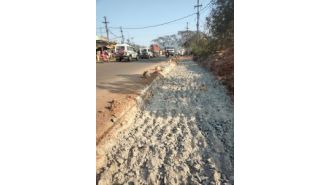San Francisco will apologize to the Black community, but some believe it is insufficient.
Supervisor Shamann Watson and the city's only Black board member see the apology as a positive step, but others have a more critical view.

The city of San Francisco is taking a significant step towards reconciliation by issuing a formal apology to its Black community. The Board of Supervisors has unanimously agreed to vote on the resolution, with all 11 members signing on as sponsors. This is a crucial move in acknowledging the city's past neglect and lack of investment in the Black community. However, while some see this as a positive step, others believe it falls short of addressing the deeper issue of reparations.
Supervisor Shamann Watson, the only Black member of the board, has been a strong advocate for reparations and sees the apology as a concrete action towards healing. However, Rev. Amos C. Brown, a member of the reparations advisory committee, believes more needs to be done. In an interview with The Associated Press, he stated that an apology is merely "cotton candy rhetoric" and that the community needs tangible actions.
The reparations advisory committee has proposed both an apology and cash payments for eligible Black adults. They recommended a lump-sum payment of $5 million and a guaranteed yearly income of $100,000. However, these recommendations may face challenges as Mayor London Breed believes reparations should be handled at the federal level. Additionally, the budget cuts made by the mayor to the office responsible for reparations have also raised concerns about the city's commitment to addressing this issue.
In a recent column for the LA Times, Erika D. Smith and Anita Chabria shed light on the connection between California's homeless crisis and the state's history of disenfranchising its Black citizens. They also interviewed Margot Kushel, head of the Benioff Initiative, who has extensively studied homelessness and housing in California. The study also recommends cash payments to assist Black Californians who are disproportionately affected by homelessness. Kushel emphasized that this crisis did not occur by accident but was a result of systemic issues that need to be addressed.
Assemblymember Reggie Jones-Sawyer summed up the urgency for reparations by stating, "America's original sin is the genocide and enslavement of human beings." He believes that the country's failure to acknowledge and address this issue is its second greatest sin. The conversation about reparations may be uncomfortable, but it is a necessary one for the city and the country to move forward.
In light of recent events, such as the false accusation of a Black man by a white man in San Francisco, it is clear that there is still a long way to go in addressing systemic racism. However, the city's formal apology is a crucial step towards acknowledging and rectifying past wrongs. It is only by having these uncomfortable conversations and taking concrete actions that we can move towards healing and creating a more equitable society.
2 Views










